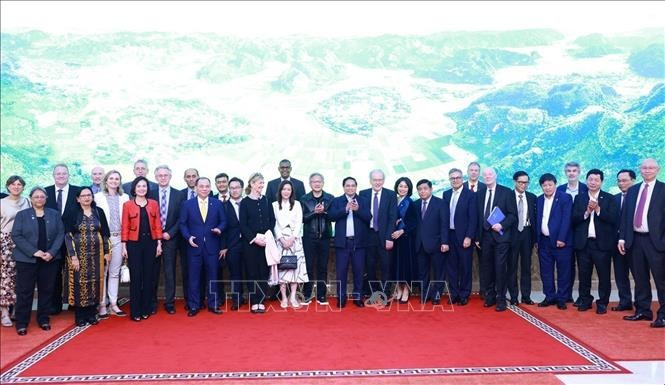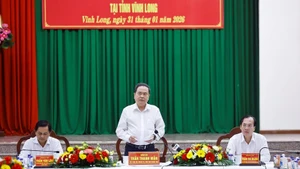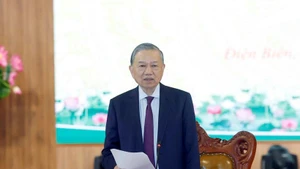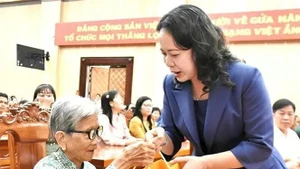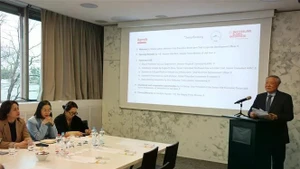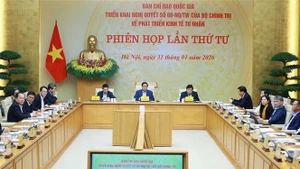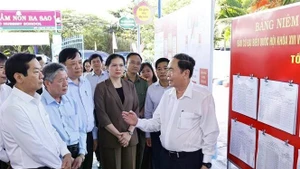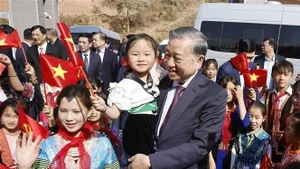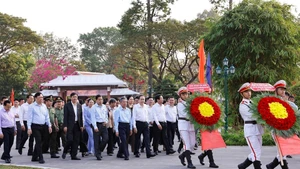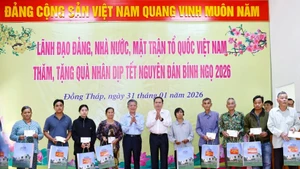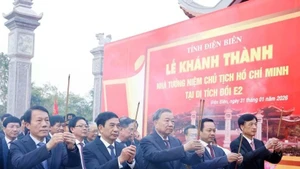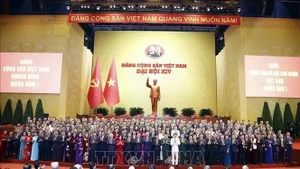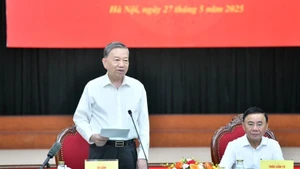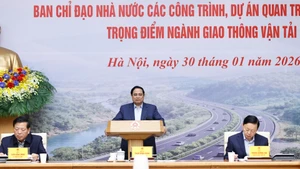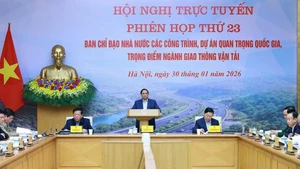Highlighting Vietnam's painful past in the last century, marked by wars, division and blockades, the PM said that Vietnam understands better than most the profound value of peace, cooperation and development.
He outlined Vietnam's foundational elements, development goals, strategic vision and six key development priorities, noting the country aims to transform into a developing country with modern industry and upper middle-income by 2030, and a developed nation with high income status by 2045.
To realise this vision, Vietnam has identified sci-tech and education-training as top national priorities and new drivers that will develop modern production forces, renew growth model; enhance productivity, quality, efficiency and competitiveness of the economy, especially digital, green, circular, sharing and nighttime economies, he said.
Vietnam also aims to catch up with, advance alongside, and even surpass others in certain fields, including artificial intelligence (AI), cloud computing, and Internet of Things (IoT), leveraging the untapped potential of its talented workforce, he declared.
He called on foreign scientists and experts to continue supporting and accompanying Vietnam, particularly in shaping orientations to developing sci-tech, education-training and innovation.
Highlighting the importance of workforce training and appropriate sci-tech infrastructure building, he called for pooling internal and external resources effectively, stepping up international cooperation in sci-tech and fine-tuning policies and mechanisms so that the benefits of sci-tech are accessible to everyone, inspiring widespread contributions to its progress.
Discussing major global trends that are continuing to shape the world in the next 10-20 years, scientists offered recommendations for Vietnam to achieve transformative growth in sci-tech, develop quality workforce and create a dynamic innovation ecosystem that seamlessly connects research with practical application.
